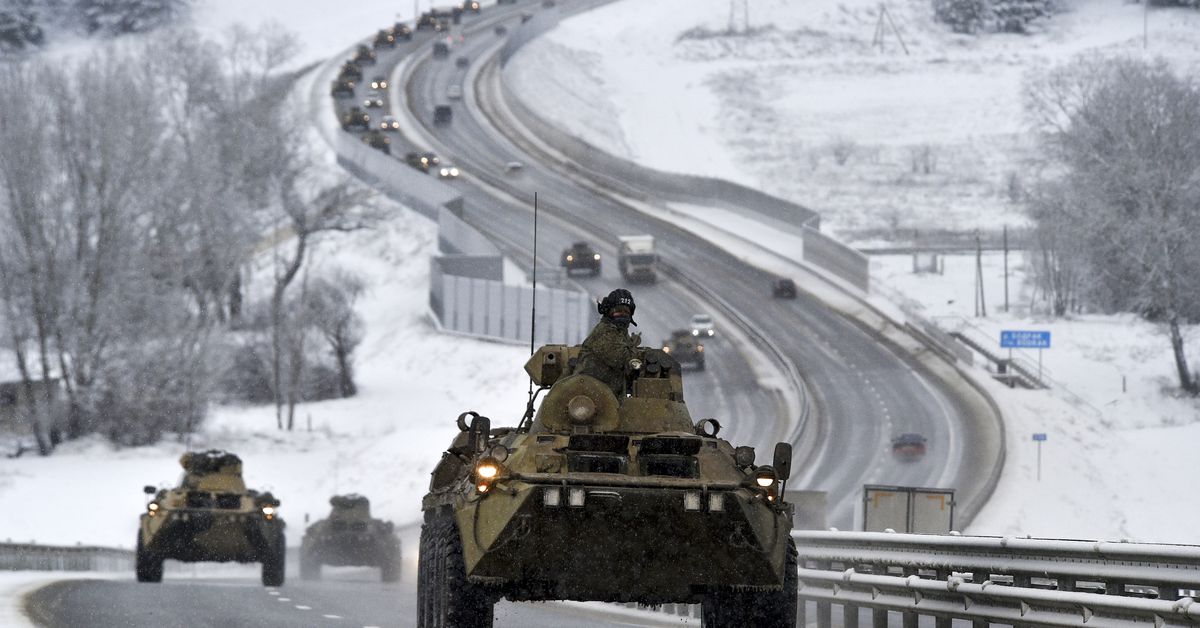
Months into Russia’s slow-moving buildup of up to 190,000 troops along the Ukrainian border, Russian President Vladimir Putin ordered troops into two Ukrainian regions held by Russian-backed separatists — a dramatic escalation that threatens to spiral out into a larger conflict.
Putin said the troops would perform “peacekeeping” functions, but most experts Vox spoke to said this looks like the beginning, not the end, of Russia’s incursion into Ukraine. (Although it is impossible to predict events with certainty.)
Diplomatic talks between the US and its allies, Russia, and Ukraine have thus far produced no big breakthroughs, and Putin’s move into eastern Ukraine — which the US called the “beginning of an invasion” — narrows the chances for a diplomatic off-ramp even more.
Some of the big-ticket demands on Russia’s list are nonstarters with the US and its allies in the North American Treaty Organization, something Russia also probably knows. For example, Moscow wants guarantees that NATO would not expand eastward, including to Ukraine. Ukraine isn’t a member and isn’t going to be anytime soon. The prospect is an irritant to Moscow; three decades ago, some of America’s most renowned foreign policy thinkers argued that NATO should be nowhere near Ukraine.
But Putin has also dismissed Ukraine’s sovereignty wholesale and demanded a rolling back of troop deployment to some former Soviet states, which would turn back the clock decades on Europe’s security and geopolitical alignment. These demands are “a Russian attempt, not only to secure his interest in Ukraine, but essentially re-litigate the security architecture in Europe,” Michael Kofman, research director in the Russia studies program at CNA, a research and analysis organization in Arlington, Virginia, told Vox’s Jen Kirby.
In other words, this is about Ukraine. But it’s also about Russia’s insecurities about its place in Europe and the world, and how Putin’s legacy is tied up in that.